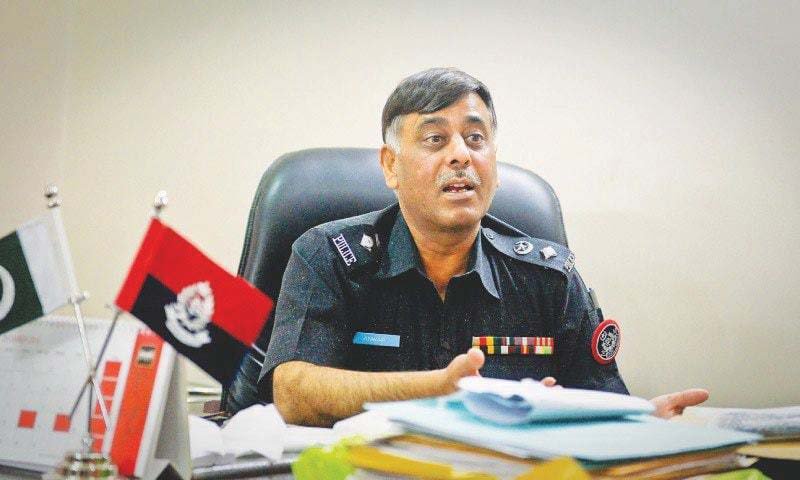Views on News for 7-5-2011
Titles:
- US wants to give frozen Libyan assets to rebels
- Syria Protests Spread Amid Widespread Detentions
- GCC-backed Yemen deal ‘postponed’
- Republican calling on US president to withdraw from Afghanistan
- Pakistan threatens to cut military co-operation with ‘gung-ho’ U.S.
News Details:
US wants to give frozen Libyan assets to rebels
The US is trying to free up part of $30 billion it has frozen in Libyan assets so it can better support the opponents of Muammar Gaddafi, US Secretary of State, Hilary Clinton told a conference on Thursday on Libya. Twenty-two nations and international organizations met in Rome to figure out how to help the Libyan rebels, who say they need up to $3 billion in the coming months for military salaries, food, medicine and other basic supplies. Clinton said the Obama administration, working with Congress, wants “to tap some portion of those assets owned by Gaddafi and the Libyan government in the US, so we can make those funds available to help the Libyan people.” The US has already pledged $53 million in humanitarian aid and authorized up to $25 million in non-lethal assistance to the rebels, including medical supplies, boots, tents, rations and protective gear. The first shipment is to arrive in the western, rebel-held city of Benghazi in the coming days. Clinton declared that ousting Gaddafi was still a top goal. “We have made it abundantly clear that the best way to protect civilians is for Gaddafi to cease his ruthless, brutal attack on civilians from the west to the east, to withdraw from the cities that he is besieging and attacking and to leave power,” Clinton said. “This is the outcome we are seeking,” she added. The Rome conference agreed to establish an internationally monitored fund the rebels can access to provide basic things like food and medicine. Italian Foreign Minister Franco Frattini, co-host of the Contact Group conference, said nations have already pledged $250 million in humanitarian aid.
Syria Protests Spread Amid Widespread Detentions
As many as 8,000 Syrians are missing in the country after security forces intensified home raids and detentions on anti-regime protesters since Friday, according to a human-rights group, and others have been released following what it describes severe torture. But the regime’s continued use of force to squash the protest movement has instigated a new set of voices-among them students in Syria’s two largest cities-protesting the crackdown itself. On Wednesday, security forces detained several students from Aleppo University after hundreds of students marched through streets around the university in the northern city, calling for a lift of the military siege on Deraa, activists said.
GCC-backed Yemen deal ‘postponed’
The signing ceremony for a deal to end Yemen’s political crisis has been postponed indefinitely after the country’s president refused to sign it personally, the Associated Press has reported. Ahmed Khalifa al-Kaabi, a media official for Gulf Cooperation Council (GCC), the six Gulf Arab nations sponsoring the agreement, said their foreign ministers would meet in the Saudi capital, Riyadh, on Sunday to try to find a way to salvage a deal. Al-Kaabi’s citing of Saleh’s refusal to personally sign the deal indicated the GCC blamed him for the deadlock. Government officials said Saleh had told GCC secretary-general Abdullatif bin Rashid al-Zayani on Saturday that he intended to ratify the deal after sending a close aide and a senior ruling party official to sign it. The standoff between Yemeni President Ali Abdullah Saleh and the hundreds of thousands of street protesters demanding his immediate departure after 32 years in office threatens to pull the impoverished and fragile nation into greater disorder. The GCC offered a deal that calls for Saleh to step down within 30 days and for the ruling party and the opposition to come together in a national unity government. In exchange, Saleh would get immunity from prosecution. Yemen’s opposition parties, which had initially agreed to the deal, said they would not sign it if Saleh refused to do so personally. For their part, representatives of those staging anti-government demonstrations since early February have rejected the deal outright, demanding that Saleh immediately step down and face trial for the killings of protesters and corruption.
Republican calling on US president to withdraw from Afghanistan
With Osama bin Laden dead and concern about the national debt growing, U.S. Rep. James McGovern is renewing his efforts to get the president to begin withdrawing U.S. forces from Afghanistan. “Now that bin Laden is dead and al-Qaida is scattered across the globe, does it really make sense to keep using over 100,000 U.S. troops to occupy Afghanistan and prop up a corrupt government?” McGovern said Thursday at a news conference. In an interview with The Sun Chronicle, McGovern, D-Worcester, said he is refilling a bipartisan bill that would require the president to submit to Congress a withdrawal plan and provide 90-day updates on how the withdrawal is being accomplished. A similar measure last year got 162 votes in the 435-member House, but McGovern said he believes support is growing. Seven Republicans are co-sponsors as conservatives become concerned about the cost of the war. “We are borrowing $8.2 billion a month for Afghanistan. Some deficit hawks are looking at it from the fiscal vantage point that it is bankrupting us,” McGovern said. McGovern said the war in Afghanistan is now the longest in U.S. history and it is time for Afghanistan to take care of its own affairs. U.S. Rep. Ron Paul, R-Texas, is among those calling for a withdrawal. “The elimination of Osama bin Laden should now prompt us to bring our troops home from Afghanistan and Iraq,” Paul said Wednesday on the House floor.
Pakistan threatens to cut military co-operation with ‘gung-ho’ U.S.
Pakistan threatened to cut military co-operation with America yesterday as recriminations flew over the assassination of Osama Bin Laden. The country’s army chief demanded cuts in the number of U.S. personnel on Pakistani soil and said ties would be slashed altogether if another anti-terrorist raid was launched there. General Ashfaq Kayani, who is seen as more powerful than Pakistan’s civilian leaders, was voicing widespread anger at U.S. claims that the country’s intelligence agency, the ISI, sheltered Bin Laden for a decade. He told colleagues that a decision had been made to reduce the number of U.S. military personnel to the ‘minimum essential’ levels. A spokesman said General Kayani ‘made it clear that any similar action violating the sovereignty of Pakistan will warrant a review on the level of military intelligence co-operation with the United States’. Earlier, the Pakistan government warned of ‘disastrous consequences’ if the U.S. staged a similar attack on its territory. But a senior British source said the U.S. would ignore the threats and launch another raid to capture or kill Bin Laden’s deputy Ayman Al Zawahiri – the new head of Al Qaeda – if they located him in Pakistan. ‘He’s next and they’ll get him if they can, however many feathers it ruffles,’ one official said. ‘It has always been likely that he is in Pakistan.’ The source said that General Kayani’s comments were ‘intended for internal consumption’.
04 Jumada II 1432
2011/05/07





